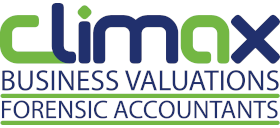About Trevor Monaghan, Business Improvement Specialist.
Trevor Monaghan is a qualified Chartered Accountant, with 15 years experience working with businesses in Newcastle and around Australia. Trevor has a passion for helping small business owners to grow their businesses, and specialises in helping business owners to build profitable operations with strong cashflows and sound business fundamentals. Trevor is also currently the Managing Director at Climax Business Strategies.
Introduction
If you know what you’re doing, and you plan ahead, it’s quite easy to find ways to effectively and legitimately reduce, defer or even eliminate your income taxes.
The main issue is to make sure you put some effort into this before the tax year ends, because it’s often too late to talk to your accountant after 30 June.
Here, at Climax Business Strategies, we often get asked the question “What CAN you do about this?” and sadly we have to respond with something like “You mean what COULD we have done about it if you’d come to us earlier!” The truth is, no one likes paying more tax than their fair share; but don’t assume that the tax system is on your side or that your accountant can fix it later.
So, we’ve included a list of the things that you can do BEFORE 30 June to reduce, defer or eliminate your income tax.
The tips below are designed for individual taxpayers, but be aware that if you also operate a business (especially a small business turning over less than $2m per year), there is a plethora of opportunities out there to reduce your taxes. If you’re in business, email our Business Improvement Specialist, Trevor Monaghan, at Trevor@climaxbusiness.com.au. Trevor will happily have a no-obligation, free chat with you about the opportunities available for you to implement strategies in your business to reduce, defer or eliminate your business tax obligations.
Tax Strategies for Investors
Tax strategies for investors are where a lot of the meaty tax planning is possible. There is a logical reason that there are so many tax concessions out there for investors. It’s because the government wants to encourage everyone to invest into things like property and the stock market, as it helps the economy and, in turn, actually increases the tax revenues in the long term.
The best tax strategies for investors are as follows:
1) If you have, or will sell, any investments this year for a capital gain – whether they be shares or property – look at whether you have any other investments you could sell to achieve a capital losses by 30 June. These losses will reduce and possibly eliminate the capital gains tax. Remember that you need to look at each year in isolation. If you crystallise your capital losses after 30 June it’s too late to take advantage of this.
2) If you have a rental property, whether residential or commercial, consider obtaining a quantity surveyor’s report to maximise your depreciation deductions. Remember that you can often depreciate the cost of the building, even if you bought it from someone else – but you will need a quantity surveyor’s report to be able to claim it. For a building costing $250,000, for example, you could reduce your tax by about $2,000 each and every year. This one’s a no brainer! Contact us at info@climaxbusiness.com.au if you want the name of a good quantity surveyor, or ask Google for the quantity surveyors in your area. Best of all, the quantity surveyor’s fees are also tax deductible.
3) For investors who have borrowed to invest, consider prepaying some interest on the loan prior to 30 June. Prepaying simply means you pay it earlier than it’s due. This is possible because, for individual taxpayers, you can claim interest when you pay it, which means you can reduce your taxes significantly this year. Consider prepaying a full year’s interest if you can, but even if you prepay July’s interest in June on a loan of $400,000 you might reduce your taxes by about $700. Talk to your lender about this first, to make sure your loan structure allows it.
4) Pay off your personal or non-deductible loans quicker than your business or deductible loans. Because you are claiming a tax deduction for the interest on your deductible loans used to buy investments, the interest rate is effectively much lower than, say, your home loan, even though the quoted interest rates could be the same. Ideally, while ever you have non-deductible debt, the optimal tax strategy is to have the deductible debt on interest-only payments and pay off your home loan as fast as you can. The savings in the long run can be massive.
5) For investors accumulating wealth for retirement (whether you’re close to retirement or not), try to minimise your investments held in your own name and instead contribute that money to a superannuation fund. Your super fund doesn’t pay more than 15% tax (and sometimes 0% tax), whereas as an individual you can pay up to 46.5%. Best of all, tax deductions and other benefits are available for each dollar you contribute up to a certain threshold. If you would like to closely control your investments, consider establishing a Self Managed Superannuation Fund. This type of fund means you can control what investments you hold, and when you buy and sell them. You can invest in just about anything with a Self Managed Superannuation Fund, and nowadays you can even negatively gear property in one. Always speak with your financial advisor on this one, but don’t rule it out because the benefits can be huge.
General Tax Strategies
Our general tax strategies are all about you taking some of the responsibility for your tax return, even if you do still give it to your accountant to complete. Your accountant can’t pluck figures from thin air (and if they do, you seriously need to consider changing accountants – it could just be a matter of time until you find yourself in a difficult situation); they need to be furnished with figures, facts and records to be able to do their job.
If you want to get a great refund it’s up to you to understand the basic requirements and provide your accountant with enough information, or what the ATO calls substantiation, for them to complete your tax return. This doesn’t mean you have to arrive at your accountant’s with a shoe box; you can neatly summarise the information on one page, for example, but keep your receipts handy in case your accountant or the Tax Office need them.
1) Make additional contributions to a super fund prior to 30 June. There are three main benefits of doing this. Firstly, if you make some contributions out of your pre-tax wage from your employer, the contributions can be fully tax deductible. Secondly, if you make the contributions from your net pay or your own bank account, you can get a co-contribution from the government where they will match your contribution dollar-for-dollar up to $1,000. Thirdly, if you make a super contribution on behalf of a low income spouse you can get a tax benefit of up to $540 each year. Income limits and other thresholds apply to all of these strategies, so have a talk to your advisor to see if you’re eligible.
2) Delay income, and bring forward deductions. This may sound like a simple solution, but you might need to put some thought into it. As a rule of thumb, think about all of the taxable income you will receive in June. Is there any way of delaying some of that income until July? Maybe you are due for a bonus from your employer in June? There could be a benefit in delaying the payment until July. Think about any expenses eligible for tax deductions you will be paying in July. Can any of these be paid in June? Not only can doing this defer your income tax, but you may also increase your Centrelink entitlements or tax offsets because of your reduced taxable income.
3) Finally, this is the information age. The Tax Office has a wealth of information on their website about what you can and can’t claim. There are really no excuses for not having at least a basic understanding of what kinds of things you can claim. Sure, the details can get a bit technical, but that’s where you talk to your financial advisor so he or she can put them into context for your personal situation. Please don’t just use your financial advisor to fill in the boxes on your tax return. Ask them a pile of questions, and if they don’t answer them to your liking, find another advisor who will. The following is list of tax deductions commonly available:
- Motor vehicle expenses
- Travel, accommodation and meals
- New uniforms and laundry
- Education expenses
- Home office expenses
- Union fees
- Professional memberships
- Telephone, computer and internet expenses
- Conferences
- Tools
- Sunglasses
- Interest on loans
- Tax agent fees
- Super contributions
- Income protection insurance premiums
As always, the devil is in the detail; but, as previously mentioned, you should at least be aware of what might be deductible, and a good advisor will do the rest.
Summary
Overall, the key thing to remember with any tax deduction is that you need to substantiate everything you claim in some way, usually with a receipt. Now is the best time to start putting your tax information together to see what receipts you do and don’t have. If you are missing a receipt, you may be able to get a copy from the supplier if they keep good records. Don’t assume it’s too late. And remember not to spend $1 to make $0.30, even if the guy at your local watering hole swears blue that that’s how it’s done!
If in doubt, write to our business improvement specialist, Trevor Monaghan, at Trevor@climaxbusiness.com.au.

